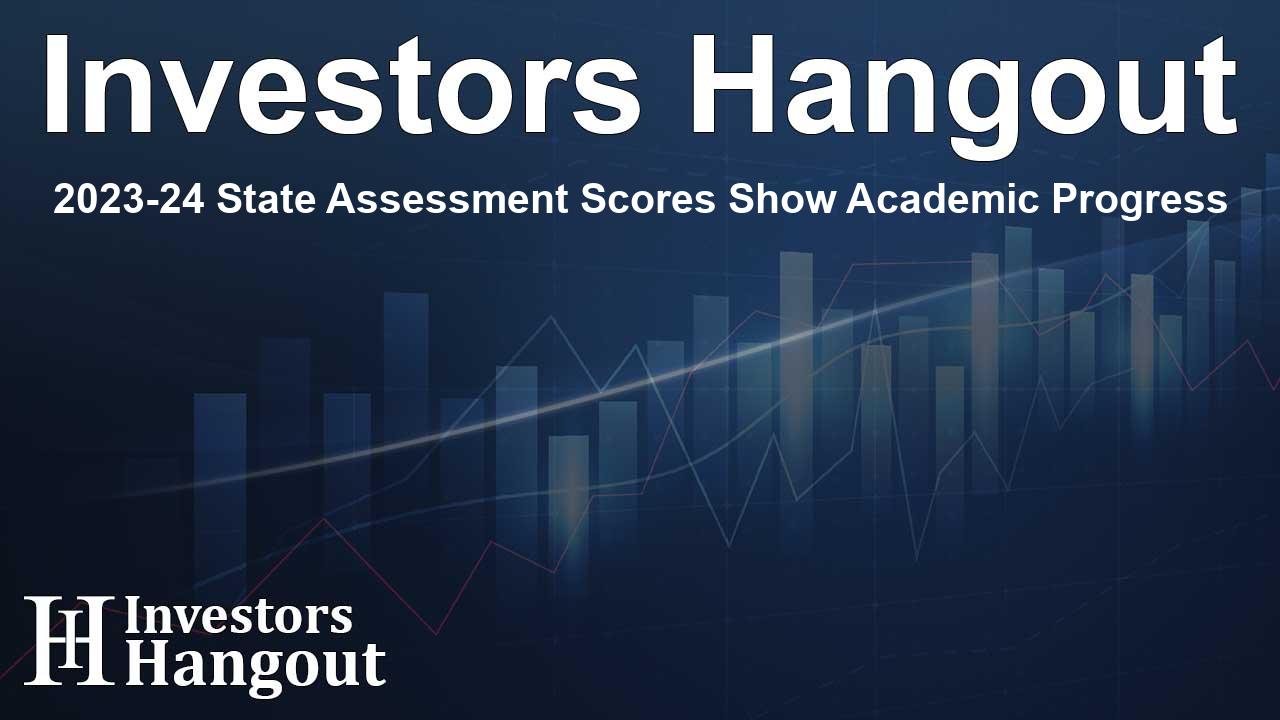2023-24 State Assessment Scores Show Academic Progress

Overview of 2023-24 State Assessment Results
Comprehensive statewide assessments have been updated, showcasing results from 41 states and Washington, D.C. This important data is displayed on the Collaborative for Student Success’ Assessment HQ platform, recognized as a reliable resource for understanding annual academic assessments, particularly for grades 3 to 8.
Positive Trends in Academic Performance
The Assessment HQ platform now includes four years of data following the pandemic, providing insight into student performance in key areas such as math and English language arts (ELA). The latest reports indicate a slow but encouraging improvement from 2022 to 2024, particularly in math, with Black students showing significant gains across the reported states.
Year-Over-Year Comparison
While examining year-over-year data, it's crucial to approach with caution. Various states have revamped elements of their testing systems, such as altering proficiency cut scores, which can skew understanding of student progress. States like Alaska, Oklahoma, and Wisconsin have made changes that must be taken into consideration when analyzing this data to accurately reflect student performance.
Spotlight on Individual States
In delving deeper into the 2024 data, states such as New York and Texas emerge as academic leaders, especially in math performance for Hispanic, Black, and Economically Disadvantaged students. Their results notably surpass the national averages, indicating targeted efforts to improve educational outcomes for these communities.
Federal Reporting Compliance and Challenges
The updated data also reflects compliance with federal reporting guidelines outlined in the Every Student Succeeds Act (ESSA). As of the most recent update, 41 states and Washington, D.C. have made their 2023-24 assessment data available, while participation data reveals some concerning trends.
Participation Rates and Data Gaps
There are notable gaps in data reporting, with 10 states yet to provide essential information that meets ESSA requirements, and 13 states lacking comprehensive participation rates. These deficiencies highlight the challenges faced in collecting and reporting reliable assessment data, underlining the importance of transparency in understanding student success.
Implications for Future Assessments
Jim Cowen, Executive Director of the Collaborative for Student Success, expressed pride in the availability of four years of data but also raised concerns about testing system changes that could artificially inflate scores. As states seek to present favorable results, maintaining the integrity of assessment data remains paramount to truly understand student progress.
Expert Commentary on Educational Trends
Educational policy expert Dale Chu continues to provide valuable analysis on K-12 assessments, emphasizing the need for clarity around disaggregated data to paint an accurate picture of student performance. This multi-faceted view is essential for stakeholders looking to support students effectively.
Looking Ahead
With updates from 41 states and Washington, D.C., Assessment HQ will keep evolving as new data comes in. This platform is essential for educators, parents, and policymakers to stay informed about state assessment trends and implications for student academic success.
Frequently Asked Questions
What is the purpose of Assessment HQ?
Assessment HQ offers a comprehensive overview of statewide academic assessments to track student progress and inform educational strategies.
How has student performance changed over the years?
The data indicates positive trends in student performance, especially in math, with notable gains from 2022 to 2024.
Which states showed the most improvement in assessment scores?
States like New York and Texas have been highlighted for particularly strong performance, especially among minority groups.
What does it mean for a state to comply with ESSA reporting requirements?
Compliance means that the state provides comprehensive data regarding student assessments and participation rates, which is crucial for accountability.
How can stakeholders utilize this assessment data?
Stakeholders can use the data to identify areas needing additional support and inform instructional decisions aimed at improving student outcomes.
About The Author
Contact Hannah Lewis privately here. Or send an email with ATTN: Hannah Lewis as the subject to contact@investorshangout.com.
About Investors Hangout
Investors Hangout is a leading online stock forum for financial discussion and learning, offering a wide range of free tools and resources. It draws in traders of all levels, who exchange market knowledge, investigate trading tactics, and keep an eye on industry developments in real time. Featuring financial articles, stock message boards, quotes, charts, company profiles, and live news updates. Through cooperative learning and a wealth of informational resources, it helps users from novices creating their first portfolios to experts honing their techniques. Join Investors Hangout today: https://investorshangout.com/
The content of this article is based on factual, publicly available information and does not represent legal, financial, or investment advice. Investors Hangout does not offer financial advice, and the author is not a licensed financial advisor. Consult a qualified advisor before making any financial or investment decisions based on this article. This article should not be considered advice to purchase, sell, or hold any securities or other investments. If any of the material provided here is inaccurate, please contact us for corrections.
